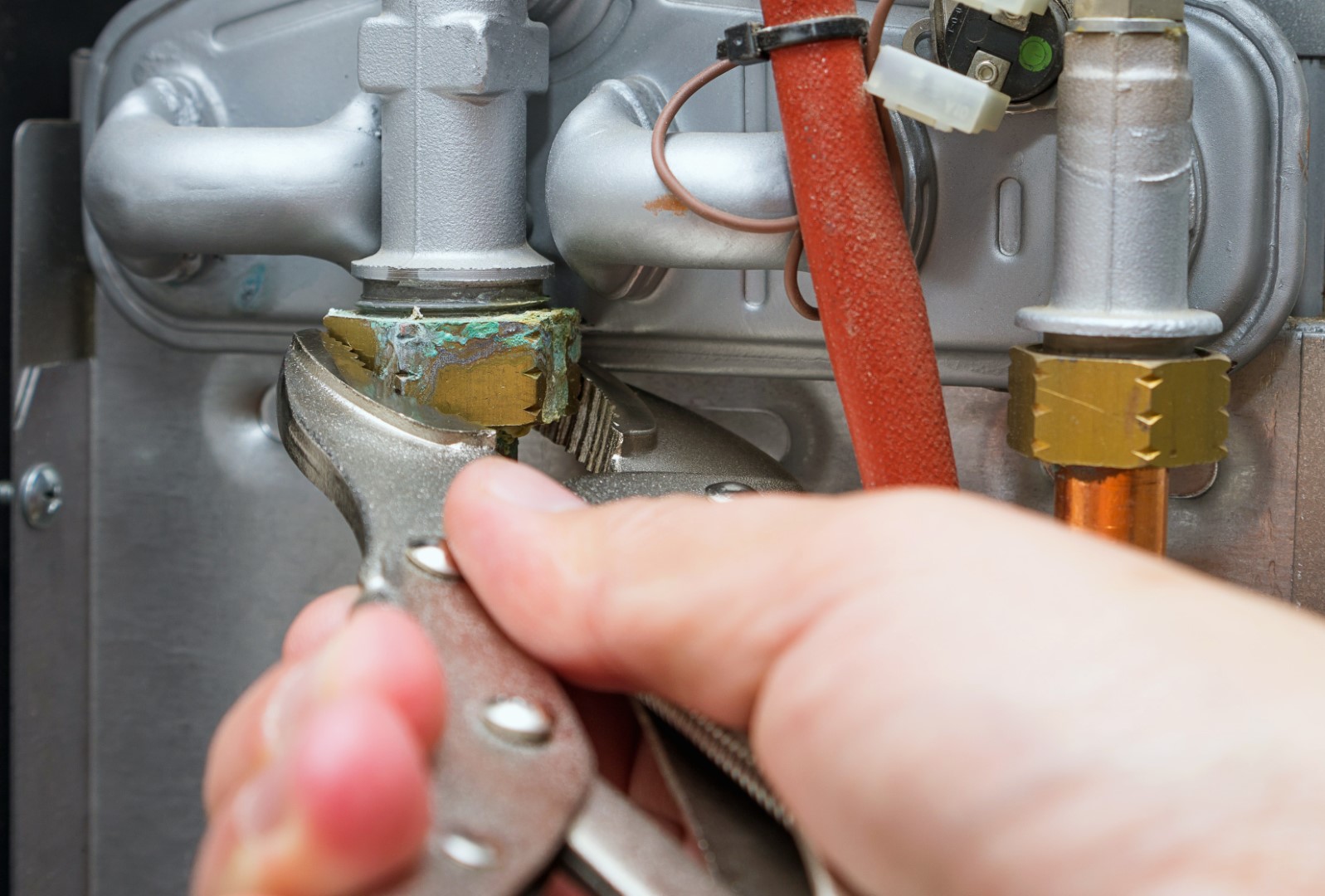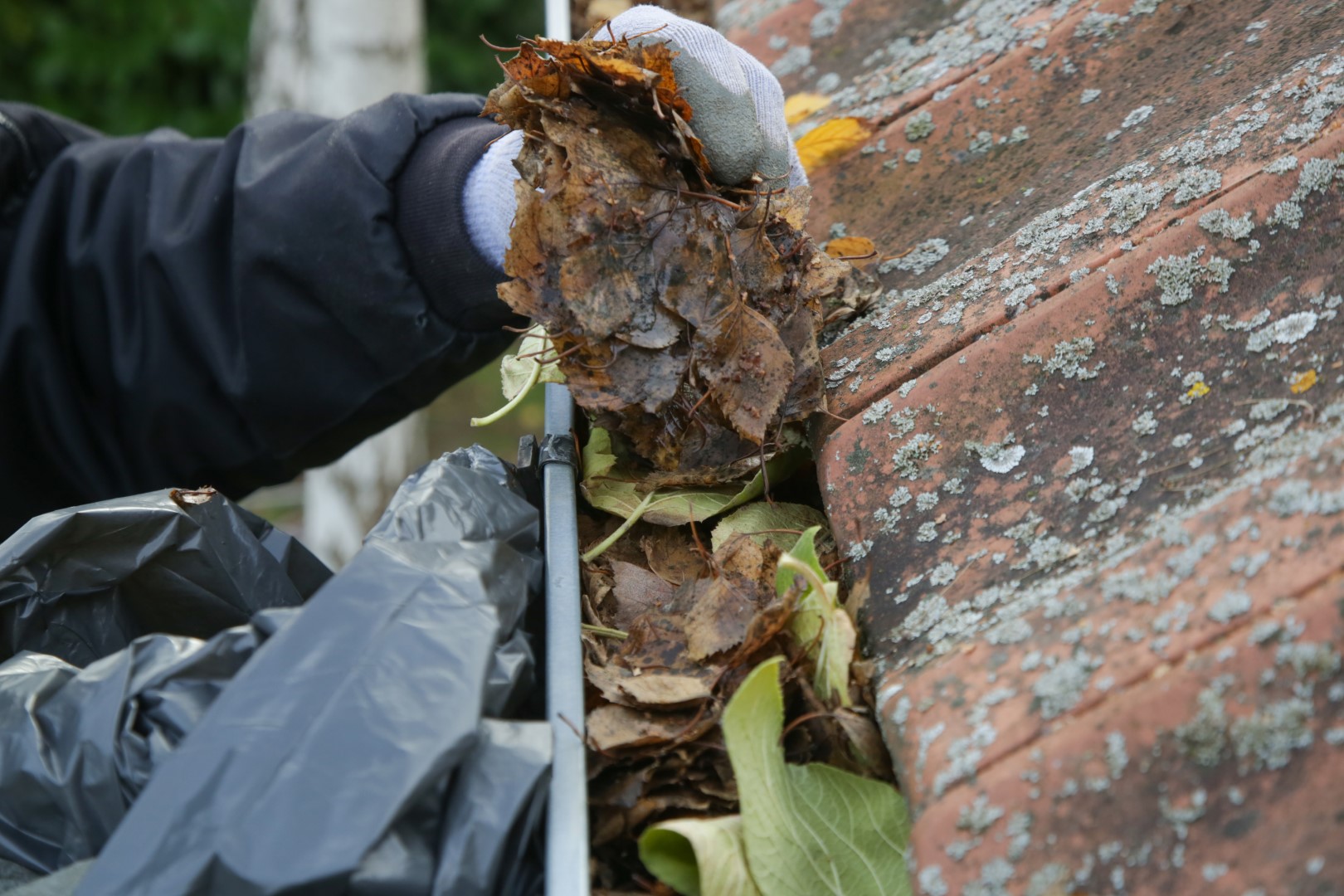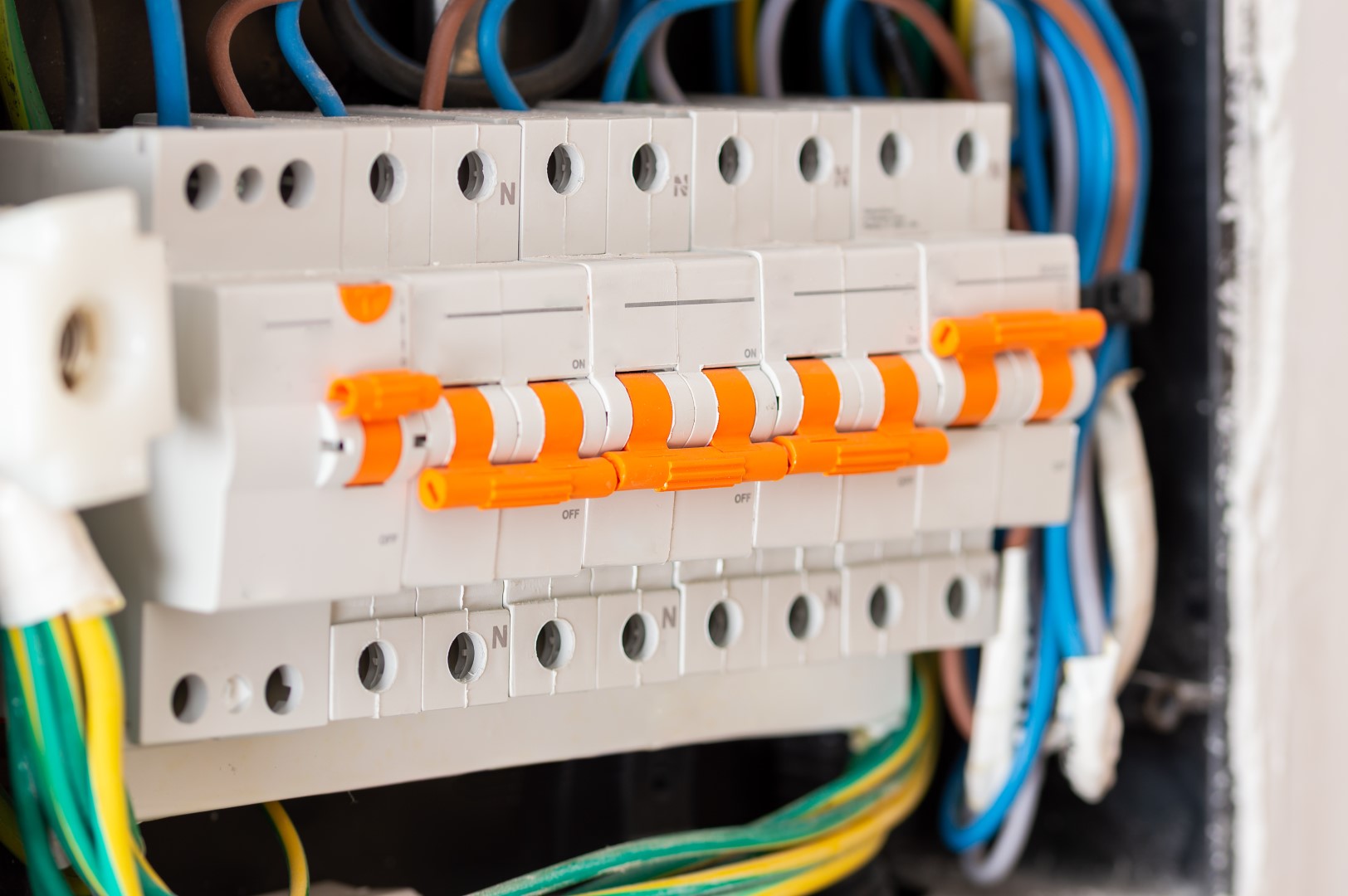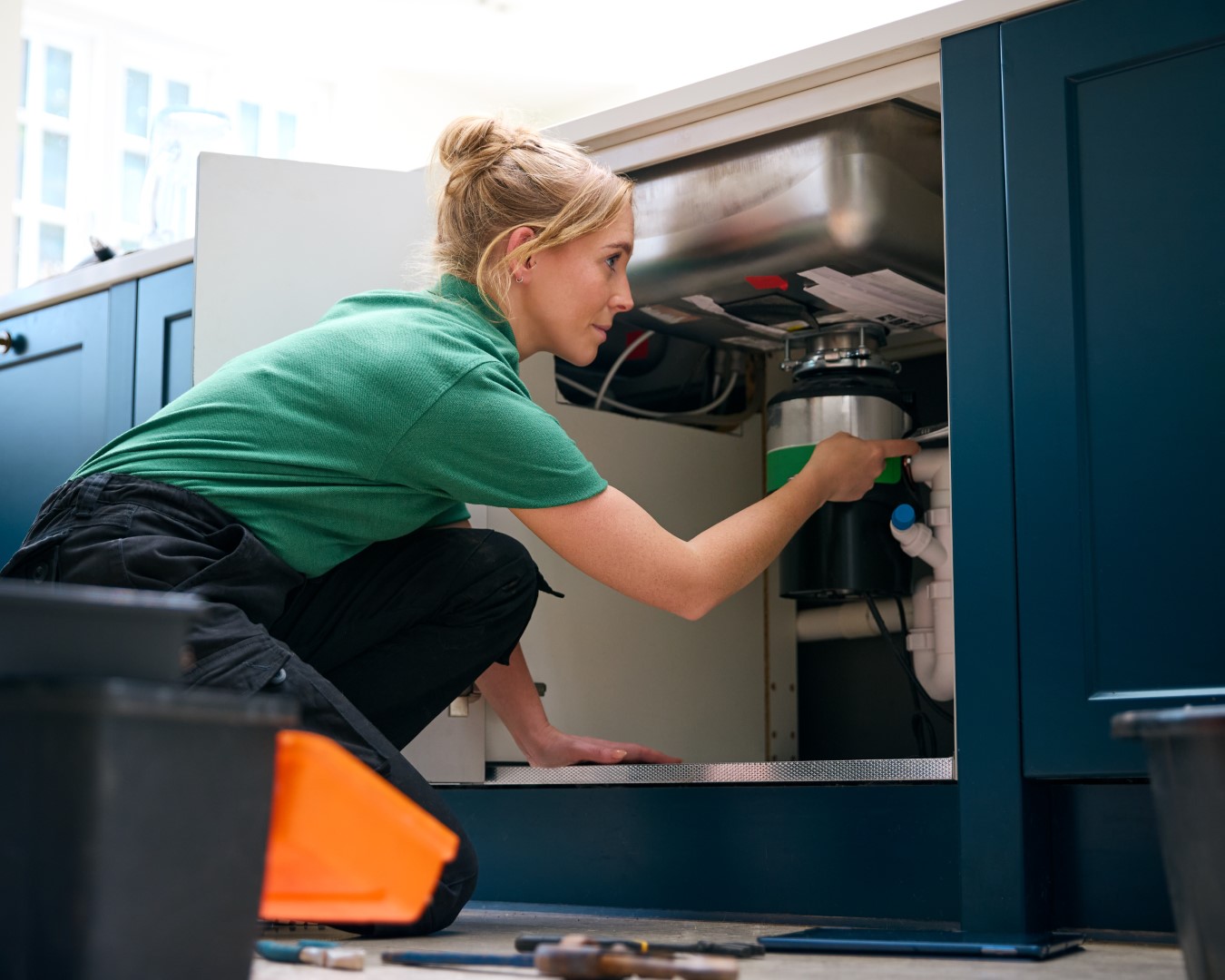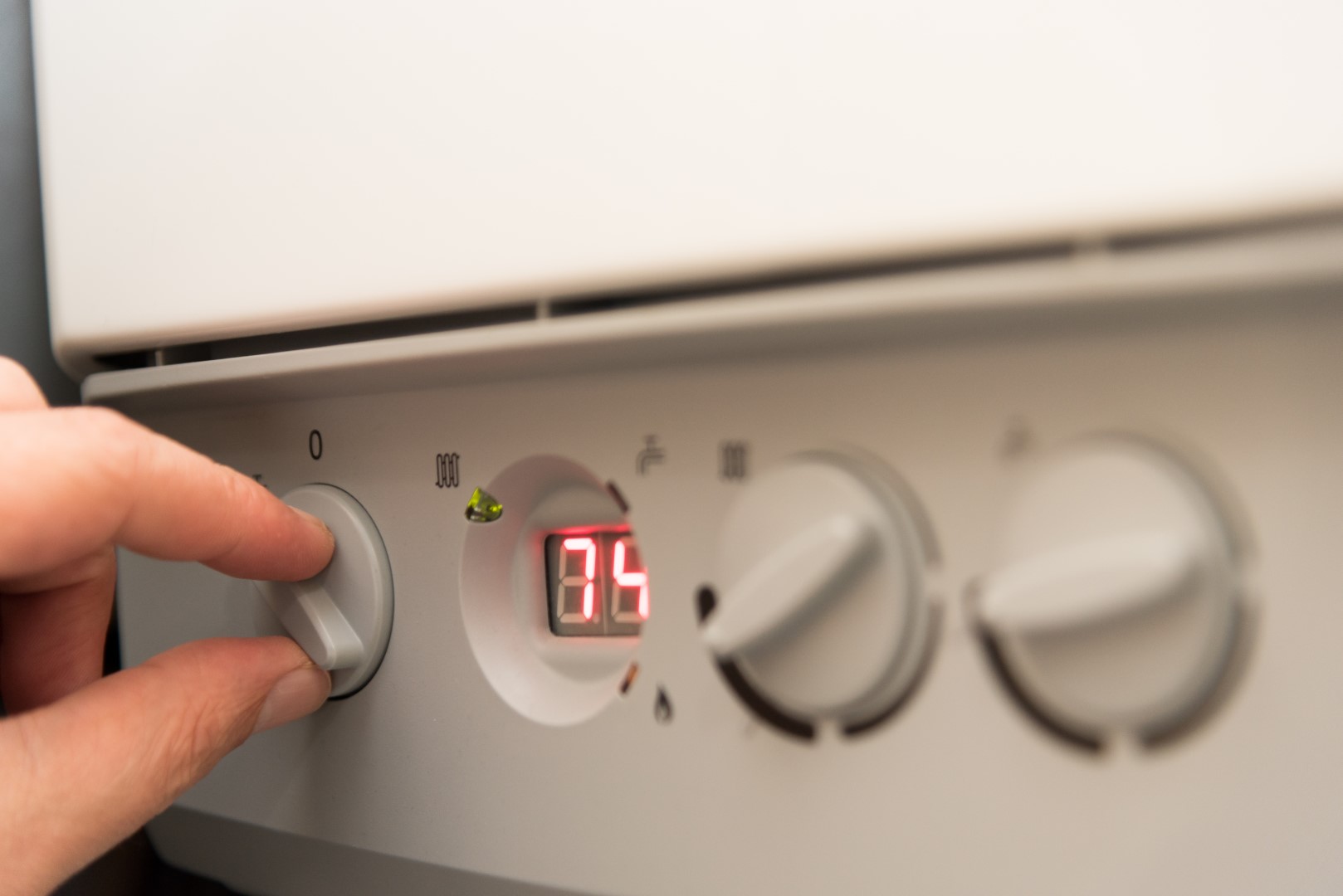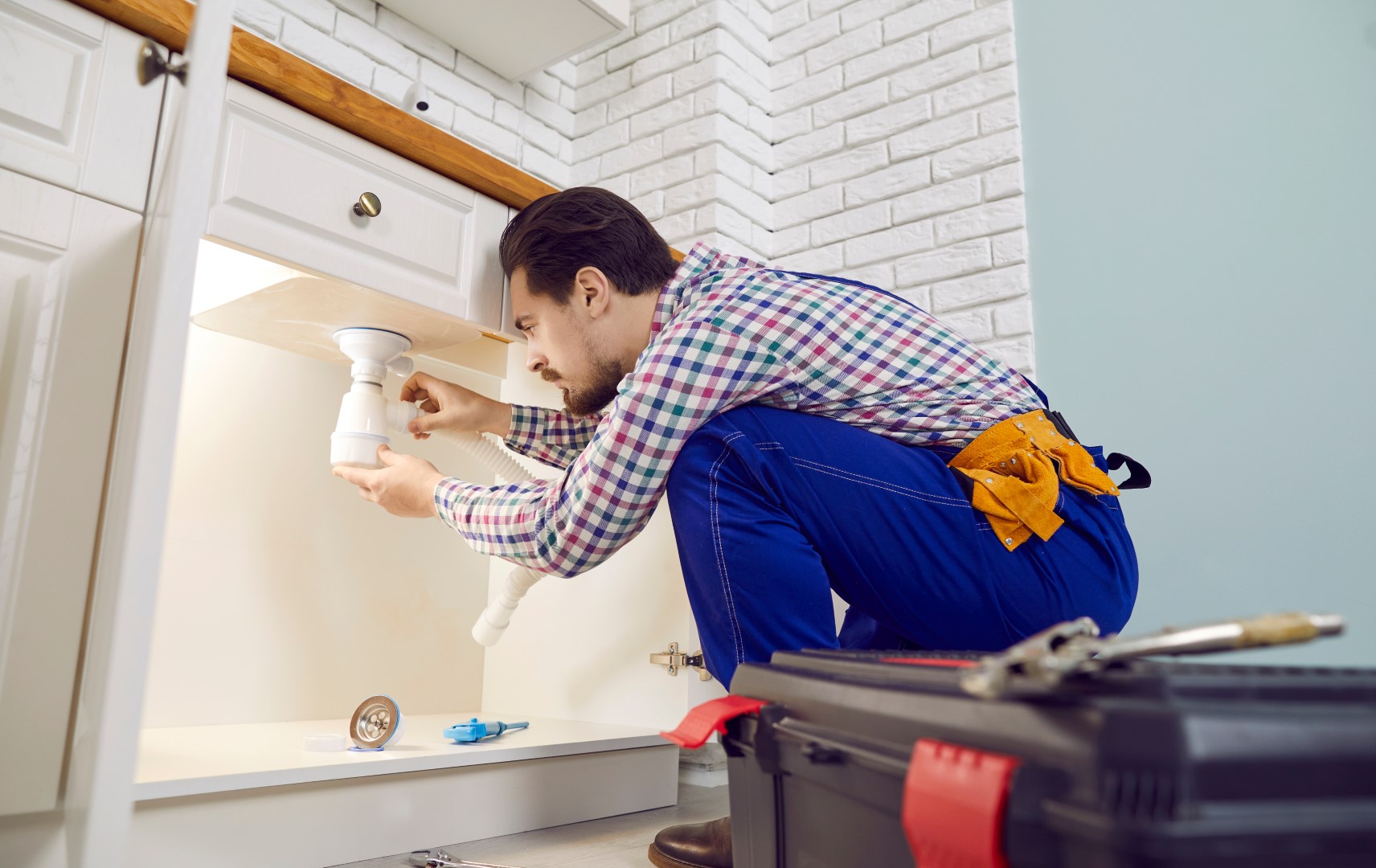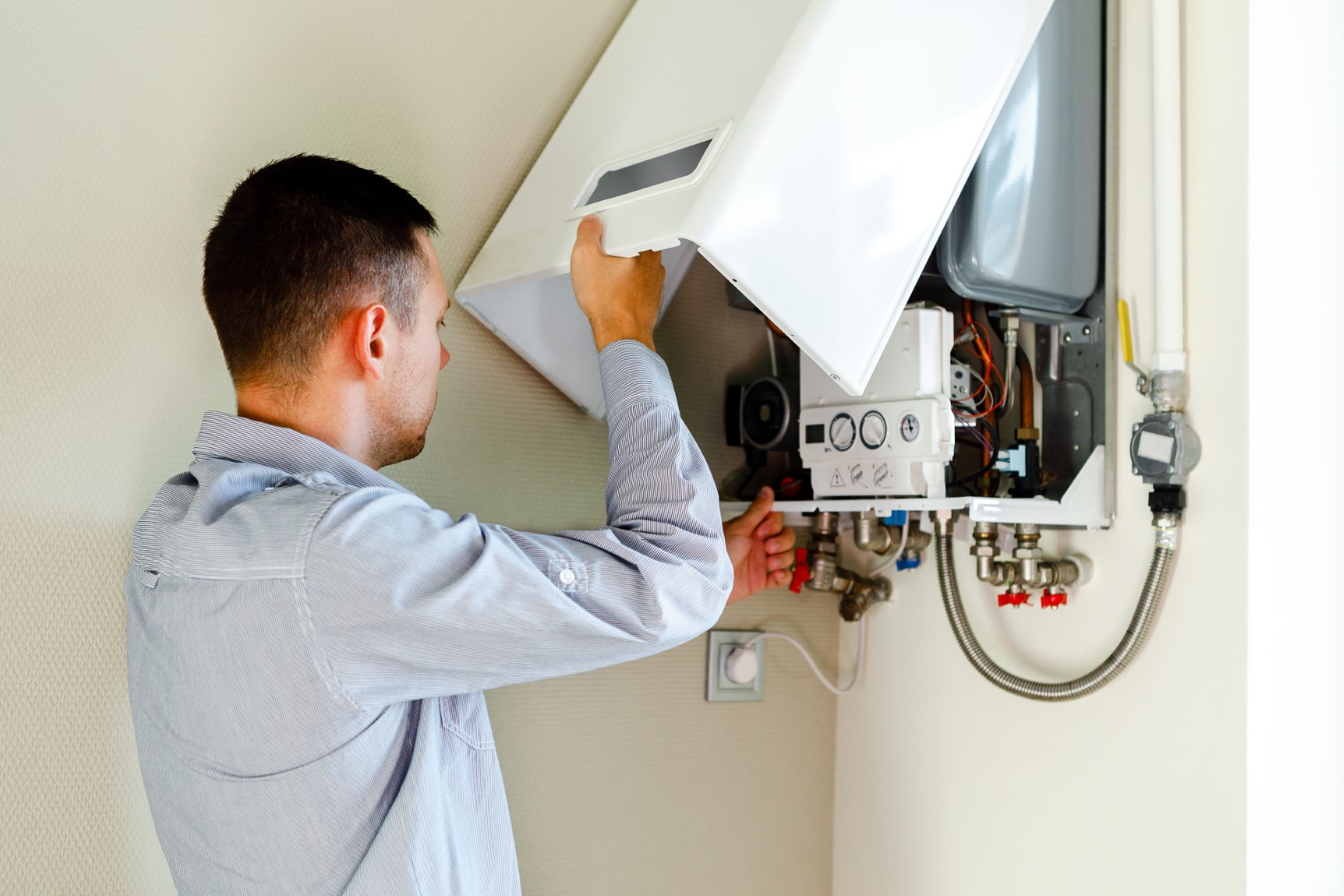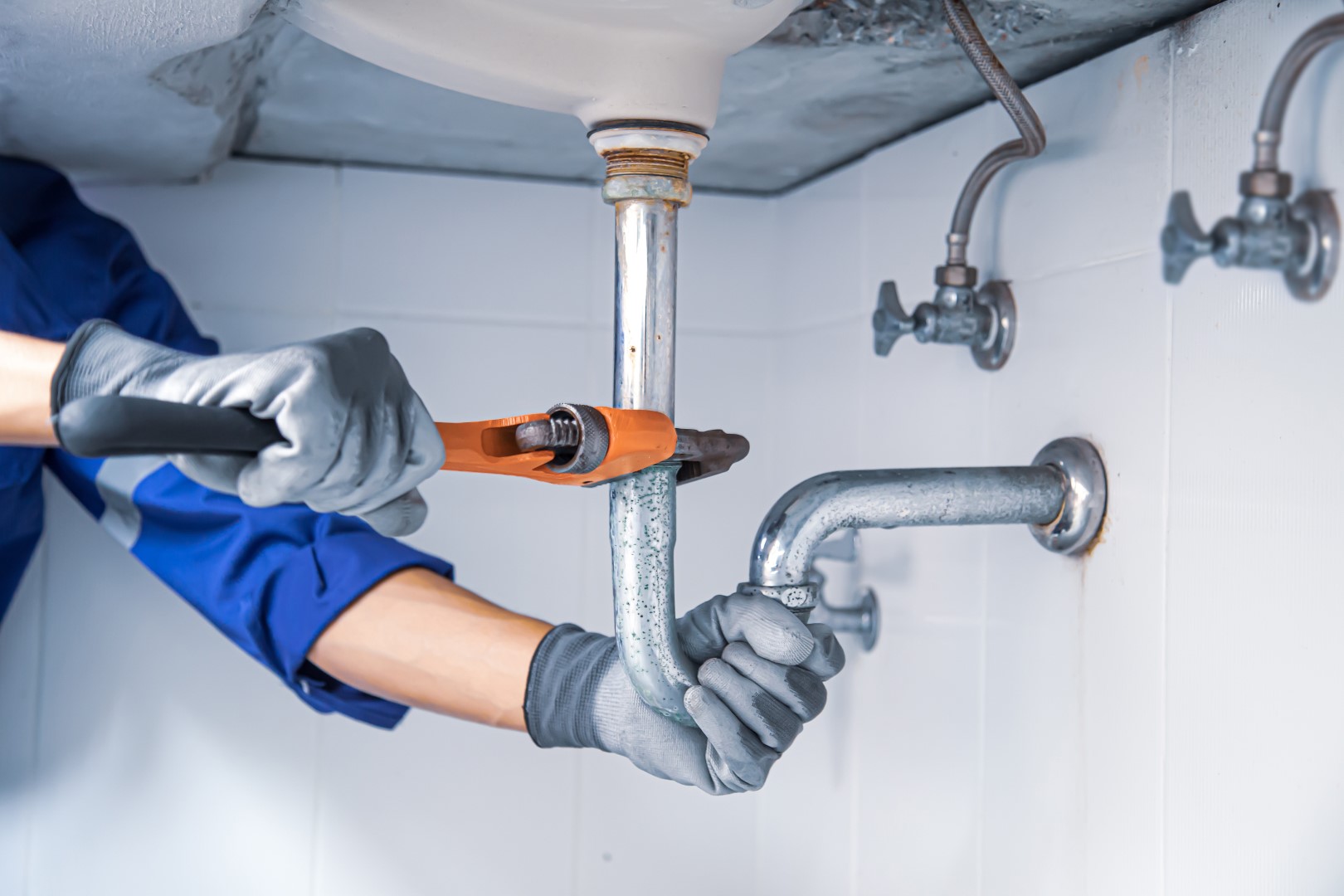Boiler Breakdowns: What to Do When the Heat Stops – A Guide from HomeService.Insure
Richard Raw
When your boiler fails, the impact is immediate: no heating, no hot water, and plenty of stress. But don’t panic — most problems can be diagnosed quickly, and many are preventable with the right care.
At HomeService.Insure, we help homeowners stay safe, warm, and prepared. Here’s your step-by-step guide to spotting the signs, running quick checks, and knowing when it’s time to call in the experts.
Quick navigation
- Warning signs your boiler is struggling
- Essential checks before calling an engineer
- Common causes and what they mean
- Coping without a working boiler
- Preventing future breakdowns
- How HomeService.Insure supports you
Warning signs your boiler is struggling
Apart from no heat or hot water, look out for:
- Strange noises: banging, tapping, or whistling
- Gas usage suddenly higher than normal
- Orange or yellow pilot light instead of a steady blue flame
- Water leaks around the pipes
- Pressure reading higher than normal
- Boiler won’t switch on at all
These are early clues that something is wrong and action is needed.
Essential checks before calling an engineer
If your boiler has stopped working, modern units often display an error code. Note it down — it will help your engineer.
Meanwhile, run through this quick checklist:
- Power supply – Has a fuse tripped? After a power cut, re-check the timer.
- Gas or oil supply – Ensure your emergency control valve is open. If other gas appliances won’t work either, it may be a supply issue.
- Water supply – Confirm your mains water is still running.
- Boiler pressure – Should be between 1–2 bar. Below 1 bar = low pressure.
- Thermostat/programmer – Ensure the system is “on” and timer settings are correct.
- Frozen condensate pipe – A common winter issue; ice blocks the pipe and causes shutdown.
- Pilot light – On older boilers, check if it has gone out.
- Fault codes – Look up your boiler brand’s manual for guidance.
Common causes and what they mean
- Electrical faults
Blown fuses, tripped switches, or faulty ignition leads can stop boilers firing.
Solution: Reset switches or call an engineer to test components.
- Gas flow problems
Blocked or damaged valves can cut off supply.
Solution: If you smell gas, call the National Gas Emergency Service immediately (0800 111 999). Otherwise, a Gas Safe engineer can test your supply and valves.
- Water pressure issues
Too little pressure prevents ignition; too much can trigger safety lockouts.
Solution: Repressurise using your manual instructions, or call an engineer if pressure swings keep recurring.
- Frozen condensate pipe
Cold UK winters often freeze outdoor condensate pipes.
Solution: Gently thaw the pipe with warm (not boiling) water or a hot water bottle.
- Pilot light faults
On older boilers, the flame may blow out or fail to ignite.
Solution: Follow your manual to relight. If it won’t stay lit, call an engineer.
- Component failures
Fans, pumps, or heat exchangers sometimes fail after years of use.
Solution: These require professional diagnosis and replacement.
Coping without a working boiler
While waiting for repairs:
- Layer up: Wear extra clothing to trap heat.
- Stop draughts: Close curtains and doors to keep warmth in.
- Use electric heaters wisely: Heat only the rooms you need.
- Boil water: Use kettles or pans for hot water needs until the system is fixed.
Preventing future breakdowns
- Annual servicing – Keeps your boiler in peak condition.
- Regular pressure checks – Helps you spot problems early.
- Switch it on occasionally in summer – Prevents parts from seizing up.
- Professional maintenance – Always use a Gas Safe registered engineer.
How HomeService.Insure supports you
A broken boiler can bring your household to a halt — but help is only a call away.
With HomeService.Insure you get:
- Rapid access to qualified Gas Safe engineers
- Clear, upfront pricing with no surprises
- Peace of mind knowing your heating is protected
Stay warm, safe, and stress-free — let HomeService.Insure take care of your boiler.
HomeService.Insure Safety Disclaimer
At HomeService.Insure, we encourage safe and sensible DIY, but your safety always comes first.
- Only attempt basic checks and fixes if you feel confident.
- Stop immediately if you notice burning smells, scorch marks, leaks, or anything that looks unsafe.
- Never attempt electrical or gas repairs beyond simple resets or checks.
- For complex, repeated, or potentially dangerous problems, always call a qualified Gas Safe engineer (for heating) or a certified electrician (for electrics).
By following this guidance, you reduce risks — but professional help should always be your first choice if there’s any doubt.
Boiler Leaks Explained: A Complete Guide by HomeService.Insure
Richard Raw
When your boiler starts leaking, it can cause anything from mild inconvenience to serious damage in your home. Acting quickly not only protects your property but could also save you money on repairs or replacements.
This guide from HomeService.Insure explains the most common reasons for boiler leaks, what to do in an emergency, and how to keep your system in top shape.
Contents at a glance
- First steps if your boiler is leaking
- Main causes of boiler leaks
- Safety concerns: should you keep using it?
- Preventative measures every homeowner should know
- Quick answers to common questions
- How HomeService.Insure can help
First steps if your boiler is leaking
If you notice water escaping from your boiler:
- Shut off the water supply using the isolation valve.
- Turn off the heating system to reduce further strain.
- Cut power to the boiler at the mains to avoid electrical risk.
- Contain the leak with a bowl or bucket and mop excess water.
- Call a Gas Safe registered engineer as soon as possible.
Tip: Note where the water is coming from and what the pressure gauge reads. This information will help your engineer diagnose the fault faster.
Main causes of boiler leaks
- Corrosion inside the boiler
Over time, oxygen and water can corrode internal pipes or the tank itself, leading to weak spots and leaks.
Solution: If corrosion is limited to one pipe, it can be replaced. Widespread rust usually means a replacement boiler is the most cost-effective option.
- High system pressure
If pressure climbs above safe levels (usually 2–2.5 bar), the relief valve may release water.
Solution: Bleed your radiators to lower pressure, and check the filling loop tap is fully closed.
- Recent installation issues
New boilers sometimes develop small leaks at the joints after fitting.
Solution: Ask your installer to revisit and tighten fittings. Always ensure your installer is Gas Safe registered.
- Worn seals and joints
Seals naturally degrade with heat cycles, leading to small leaks.
Solution: A quick fix for an engineer — usually a new seal or joint replacement.
- Faulty heat exchanger
A cracked heat exchanger is one of the more expensive repairs.
Solution: A professional inspection will determine if it can be repaired or if replacement is better value.
- Pressure relief valve failure
If the valve itself malfunctions, it may leak even at normal pressures.
Solution: Don’t attempt DIY here — call a Gas Safe engineer for a safe replacement.
- Blocked condensate pipe
Condensate pipes can freeze or clog with debris, backing water into the boiler.
Solution: Carefully thaw an external pipe with warm water, but otherwise call an engineer to clear or replace it.
Safety concerns: should you keep using it?
Absolutely not.
Running a leaking boiler risks:
- Water damage to your property
- Electrical faults or shocks
- Escalating damage inside the boiler
The safest approach: switch it off and call an engineer immediately.
Preventative measures every homeowner should know
- Annual servicing – Stops minor issues becoming major leaks.
- System flushing – Removes limescale and sludge that cause corrosion.
- Magnetic filter installation – Captures metal debris before it damages the boiler.
- Pressure checks – Keep system pressure steady between 1–2 bar.
Quick answers to common questions
Is any amount of boiler leakage normal?
No. Even a small drip indicates a fault.
Why is water dripping from underneath my boiler?
Most likely corrosion or failing seals. Contact an engineer immediately.
Can I fix a leaking boiler myself?
No — always leave repairs to Gas Safe registered professionals for safety reasons.
How HomeService.Insure can help
At HomeService.Insure, we understand how disruptive a leaking boiler can be. That’s why we connect homeowners with trusted, Gas Safe registered engineers quickly and efficiently.
With us, you’ll get:
- Fast response times when emergencies strike
- Clear, upfront pricing with no hidden surprises
- Qualified engineers you can rely on
Stay safe, avoid unnecessary stress, and let HomeService.Insure take care of your boiler problems.
HomeService.Insure Safety Disclaimer
At HomeService.Insure, we encourage safe and sensible DIY, but your safety always comes first.
- Only attempt basic checks and fixes if you feel confident.
- Stop immediately if you notice burning smells, scorch marks, leaks, or anything that looks unsafe.
- Never attempt electrical or gas repairs beyond simple resets or checks.
- For complex, repeated, or potentially dangerous problems, always call a qualified Gas Safe engineer (for heating) or a certified electrician (for electrics).
By following this guidance, you reduce risks — but professional help should always be your first choice if there’s any doubt.
DIY vs Professional Gutter Cleaning
Richard Raw
Situation |
DIY Cleaning Possible? |
When to Call a Professional |
|---|---|---|
| Single-storey house with easy access | Yes – safe with a ladder, gloves, scoop, and hose | Not needed unless damage is found |
| Two-storey+ home | Possible but risky – ladders are unsafe at this height | Safer to hire professionals with the right equipment |
| Light debris (leaves, moss, seeds) | Yes – simple to clear with scoop and flush | Only call if gutters are damaged |
| Heavy build-up or compacted sludge | Possible with effort – may require drain rods or pressure washer | Professionals can jet-wash and clear faster |
| Loose brackets or broken guttering | Beyond DIY repair | Call for repair or replacement |
| Health/safety concerns | Unsafe to attempt | Always hire professionals |
HomeService.Insure Safety Disclaimer
At HomeService.Insure, we encourage safe and sensible DIY, but your safety always comes first.
- Only attempt basic checks and fixes if you feel confident.
- Stop immediately if you notice burning smells, scorch marks, leaks, or anything that looks unsafe.
- Never attempt electrical or gas repairs beyond simple resets or checks.
- For complex, repeated, or potentially dangerous problems, always call a qualified Gas Safe engineer (for heating) or a certified electrician (for electrics).
By following this guidance, you reduce risks — but professional help should always be your first choice if there’s any doubt.
DIY vs Professional Help – Tripped Fuse Guide
Richard Raw
Situation |
DIY Fix Possible? |
Call an Electrician If… |
|---|---|---|
| One switch flipped down | Yes – flip it back up to “on” | If it immediately trips again |
| Power lost in part of the house | Check which circuit breaker is down and reset | If the same area keeps losing power |
| Appliance trips the fuse | Unplug appliances and test one by one | If the circuit still trips with no appliances connected |
| Burning smell or scorch marks | Unsafe to attempt DIY | Call immediately – could be dangerous wiring |
| RCD (safety switch) won’t stay up | Beyond DIY level | Needs professional testing and repair |
| Frequent tripping across multiple circuits | Likely a system fault | Full inspection of wiring and consumer unit required |
HomeService.Insure Safety Disclaimer
At HomeService.Insure, we encourage safe and sensible DIY, but your safety always comes first.
- Only attempt basic checks and fixes if you feel confident.
- Stop immediately if you notice burning smells, scorch marks, leaks, or anything that looks unsafe.
- Never attempt electrical or gas repairs beyond simple resets or checks.
- For complex, repeated, or potentially dangerous problems, always call a qualified Gas Safe engineer (for heating) or a certified electrician (for electrics).
By following this guidance, you reduce risks — but professional help should always be your first choice if there’s any doubt.
Bathroom Sink Blockages – DIY vs Call a Plumber
Richard Raw
Situation |
DIY Fix Options |
Call a Plumber If… |
|---|---|---|
| Slow draining water | Boiling water, baking soda + vinegar, plunger | Problem returns quickly or gets worse |
| Standing water | Remove plug, pull out hair/scum, plunge | Water doesn’t shift after several tries |
| Hair/soap build-up in P-trap | Unscrew, clean, and reconnect | P-trap is cracked or badly corroded |
| Deep blockage in pipes | Use a drain snake or wire hook | DIY methods don’t reach or clear the clog |
| Persistent foul smell | Baking soda + vinegar rinse | Smell continues, may indicate deeper drain issue |
HomeService.Insure Safety Disclaimer
At HomeService.Insure, we encourage safe and sensible DIY, but your safety always comes first.
- Only attempt basic checks and fixes if you feel confident.
- Stop immediately if you notice burning smells, scorch marks, leaks, or anything that looks unsafe.
- Never attempt electrical or gas repairs beyond simple resets or checks.
- For complex, repeated, or potentially dangerous problems, always call a qualified Gas Safe engineer (for heating) or a certified electrician (for electrics).
By following this guidance, you reduce risks — but professional help should always be your first choice if there’s any doubt.
Boiler Pressure Guide – At a Glance
Richard Raw
Pressure Reading |
Status |
What to Do |
|---|---|---|
| 0–1 bar | Too low | Top up using the filling loop (check manual) |
| 1.5–2 bars | Normal | Safe operating range |
| 2.5+ bars | Too high | Bleed radiators or drain off excess water |
| Fluctuating wildly | Fault suspected | Call a Gas Safe engineer to check expansion vessel or relief valve |
HomeService.Insure Safety Disclaimer
At HomeService.Insure, we encourage safe and sensible DIY, but your safety always comes first.
- Only attempt basic checks and fixes if you feel confident.
- Stop immediately if you notice burning smells, scorch marks, leaks, or anything that looks unsafe.
- Never attempt electrical or gas repairs beyond simple resets or checks.
- For complex, repeated, or potentially dangerous problems, always call a qualified Gas Safe engineer (for heating) or a certified electrician (for electrics).
By following this guidance, you reduce risks — but professional help should always be your first choice if there’s any doubt.
Blockages - DIY vs Professional Fixes
Richard Raw
Situation |
DIY Fix Possible? |
When to Call a Professional |
|---|---|---|
| Small blockage near the surface (leaves, food waste, hair, soap scum) | Yes – try rodding, boiling water, baking soda + vinegar, or a drain snake | Not needed unless blockage keeps returning |
| Standing water in outside drain | Sometimes – remove what you can by hand and use drain rods | If water level doesn’t fall after several attempts |
| Blocked gully or kitchen drain | Usually – DIY methods can work if it only affects your home | If it’s shared with neighbours (contact your water company) |
| Bad smells with no obvious blockage | Often indicates deeper issue | Call a drainage engineer to inspect further |
| Repeated blockages in same place | DIY won’t solve the root cause | A professional may need to jet clean or repair the drain |
| Overflowing manhole or shared sewer | Not your responsibility | Contact your water provider immediately |
HomeService.Insure Safety Disclaimer
At HomeService.Insure, we encourage safe and sensible DIY, but your safety always comes first.
- Only attempt basic checks and fixes if you feel confident.
- Stop immediately if you notice burning smells, scorch marks, leaks, or anything that looks unsafe.
- Never attempt electrical or gas repairs beyond simple resets or checks.
- For complex, repeated, or potentially dangerous problems, always call a qualified Gas Safe engineer (for heating) or a certified electrician (for electrics).
By following this guidance, you reduce risks — but professional help should always be your first choice if there’s any doubt.
Boiler Breakdown Guide – Quick Fixes vs Professional Help
Richard Raw
Problem |
Try This Yourself |
Call a Gas Safe Engineer When… |
|---|---|---|
| No heating or hot water | Check power, thermostat, programmer, and pressure | The system still won’t start, or pressure keeps dropping |
| Error/fault code showing | Look it up in the manual or online | Code won’t clear, or relates to gas/ignition faults |
| Pilot light gone out | Relight following manufacturer’s instructions (older boilers only) | It won’t stay lit, or flame is yellow/orange instead of blue |
| Frozen condensate pipe | Pour warm (not boiling) water over the pipe, or use a hot water bottle | Pipe keeps freezing, or boiler still won’t restart |
| Strange noises (banging/whistling) | Bleed radiators to remove trapped air | Noises continue, could indicate pump, valve, or heat exchanger issues |
HomeService.Insure Safety Disclaimer
At HomeService.Insure, we encourage safe and sensible DIY, but your safety always comes first.
- Only attempt basic checks and fixes if you feel confident.
- Stop immediately if you notice burning smells, scorch marks, leaks, or anything that looks unsafe.
- Never attempt electrical or gas repairs beyond simple resets or checks.
- For complex, repeated, or potentially dangerous problems, always call a qualified Gas Safe engineer (for heating) or a certified electrician (for electrics).
By following this guidance, you reduce risks — but professional help should always be your first choice if there’s any doubt.
DIY vs Professional Fixes – Leaking Outside Tap
Richard Raw
Situation |
DIY Repair Possible? |
When to Call a Professional |
|---|---|---|
| Loose packing nut (drip around handle) | Yes – tighten with a spanner or apply PTFE tape | If it still leaks after tightening and resealing |
| Worn washer (drip from spout) | Yes – replace washer with a basic toolkit | If washer replacement doesn’t solve it, valve seat may be damaged |
| Leaking hose connector | Yes – replace the O-ring | If leak continues after O-ring replacement |
| Corroded or seized tap | Possible, but difficult | Professional replacement recommended |
| Valve seat worn inside tap | Not practical for DIY | Plumber can reseat or fit a new tap |
| Unsure of water supply isolation | Don’t risk flooding | Call a plumber to safely isolate and repair |
HomeService.Insure Safety Disclaimer
At HomeService.Insure, we encourage safe and sensible DIY, but your safety always comes first.
- Only attempt basic checks and fixes if you feel confident.
- Stop immediately if you notice burning smells, scorch marks, leaks, or anything that looks unsafe.
- Never attempt electrical or gas repairs beyond simple resets or checks.
- For complex, repeated, or potentially dangerous problems, always call a qualified Gas Safe engineer (for heating) or a certified electrician (for electrics).
By following this guidance, you reduce risks — but professional help should always be your first choice if there’s any doubt.

